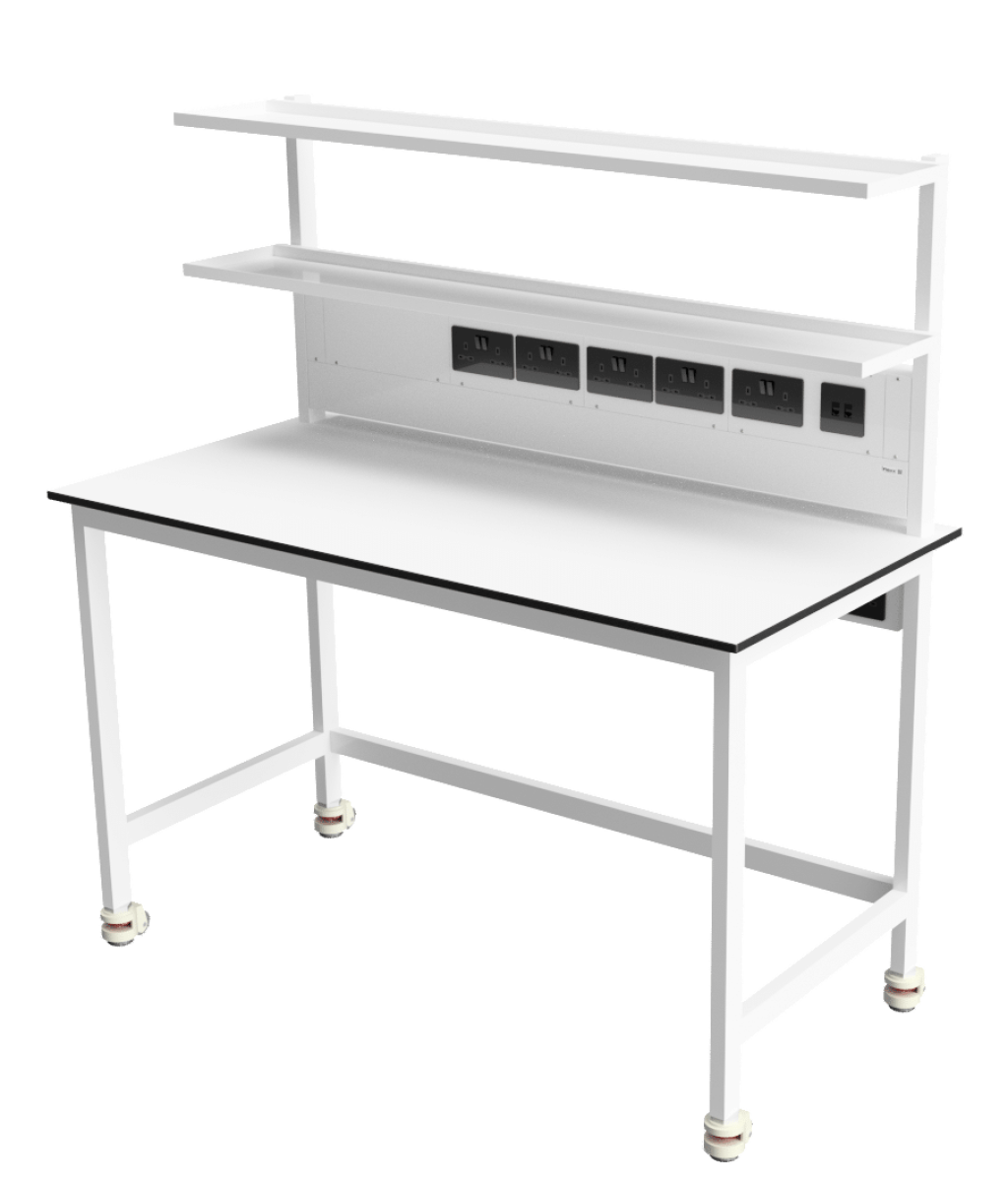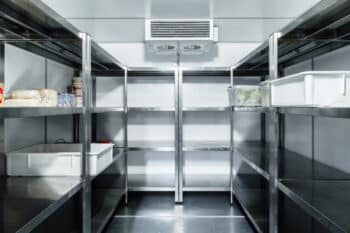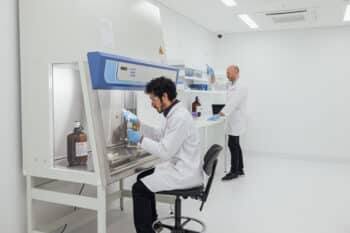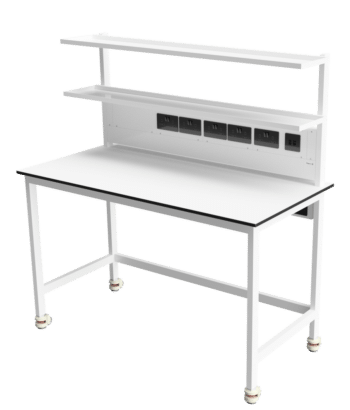
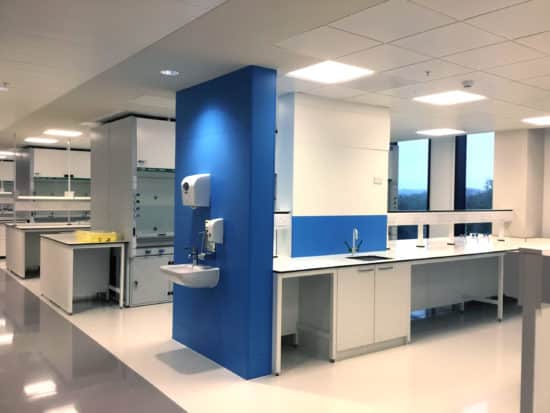
In today’s dynamic world of scientific research, flexibility has become a top priority in lab design. Laboratories are no longer static, single-purpose spaces; they need to adapt to changing research needs, advancing technology, and a shifting workforce. One of the critical choices lab managers face is whether to invest in flexible modular benching systems, such as the iFLEXX Modular Benching system, or stick with a more traditional fixed benching lab design. Here’s a breakdown of both approaches and how they might suit different laboratory needs.
1. Understanding the key differences
Traditional fixed benching
In traditional labs, fixed benching involves permanently installed lab benches, storage units, and equipment stations. This type of setup is often very sturdy, providing ample storage and heavy-duty workspaces. However, it lacks the flexibility to adapt to new requirements without significant remodelling.
iFlexx Modular Benching
In contrast, the iFLEXX Modular Benching system is designed with flexibility in mind. This type of benching consists of mobile, reconfigurable workstations that can be moved, resized, and adapted to suit different tasks, equipment, and team sizes. These systems enable laboratories to evolve without the need for costly redesigns or construction work.
Choosing a modular system may require an services delivery redesign if upgrading an existing facility depending on the current services design within the existing lab.
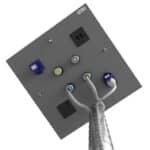
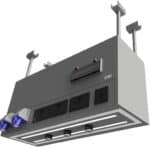
iFlexx services delivery
ceiling tile or gantry
2. Key Advantages of Flexible iFLEXX Modular Benching
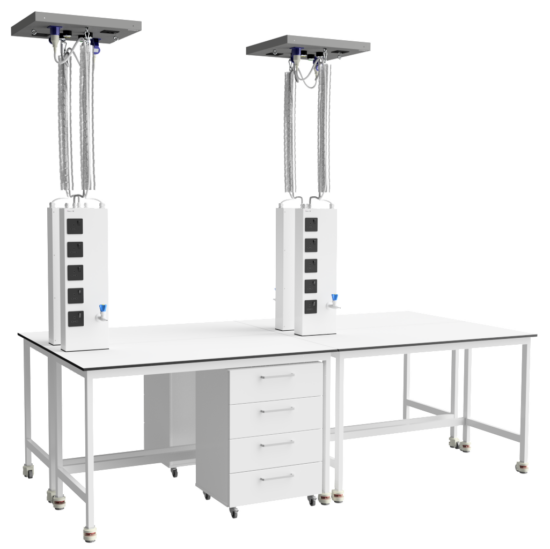
Adaptability for Diverse Workflows
In fields such as biotechnology, pharmaceuticals, and clinical research, new methodologies and equipment emerge regularly. iFLEXX’s modular setup allows the lab to reconfigure and adapt the layout quickly, so you can optimise for new workflows without significant downtime or cost. This is ideal for facilities that need to balance both chemical and biological research spaces or frequently switch between different types of experiments.
Scalability for Expanding Teams
Laboratories often grow, and hiring new staff can lead to space challenges. Modular benching enables scalable lab space that can expand as your team does, allowing you to add more workstations or equipment zones as needed. For instance, a research facility starting with a team of five might only need minimal bench space, but as the team grows, iFLEXX modular benches can provide a solution for easy, space-efficient expansion.
Future-Proofing Against Technological Advances
With the rapid pace of scientific advancement, labs are continually adding new equipment and tools. Fixed benching often struggles to accommodate these changes, while modular benching can adjust for new technology by rearranging or adding modular sections, thus future-proofing the space.
Improved Ergonomics and Collaboration
Flexible layouts can be adjusted for ergonomic benefits and support collaborative teamwork. iFLEXX systems allow benches to be repositioned for open, collaborative spaces or individual work zones, depending on current project needs. This adaptability can improve employee satisfaction and productivity by providing a space that fits their immediate tasks and preferences.
3. Benefits of Traditional Fixed Benching
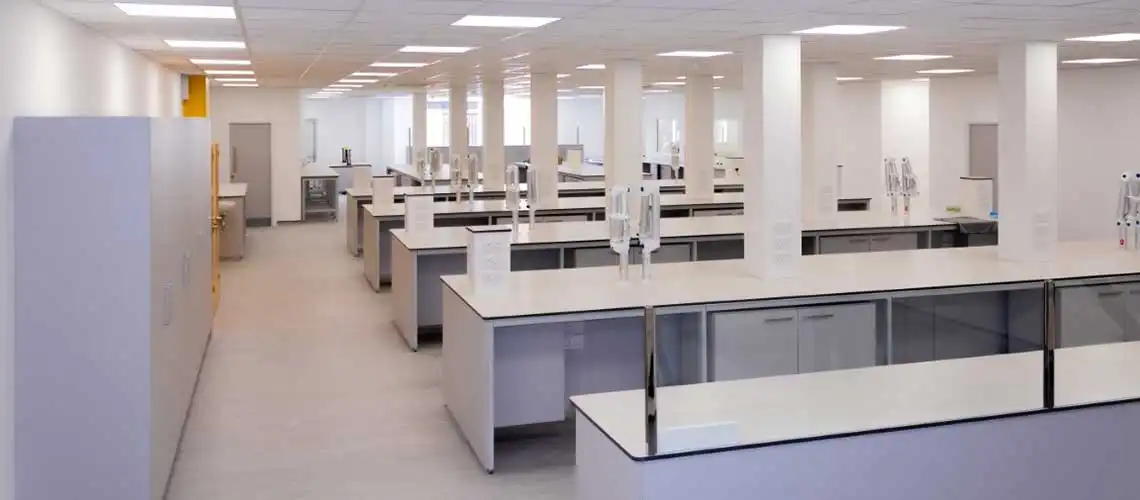
While flexible modular benching has clear advantages, fixed benching still holds appeal, particularly for labs focused on high-volume production or those that conduct repetitive, standardised procedures. Here’s why traditional setups might be preferred:
Stability for Heavy-Duty Equipment
If your lab handles heavy equipment or vibration-sensitive instruments, traditional fixed benching provides a more stable foundation. Fixed benches are often designed to bear more weight and provide reduced movement or vibration, essential for specific types of analysis or sensitive measurements, however our iFlexx system has been designed to combat many of these issues providing a real alternatve to the traditional fixed benching system.
Cost-Effectiveness for Specialised Labs
For high-throughput labs that prioritise efficiency over flexibility, a fixed design can streamline daily tasks without distraction.
When Should You Choose Flexible iFLEXX Benching Over Traditional Fixed Benching?
If Your Lab is Research-Oriented
Research labs benefit from modular flexibility as they often need to adapt to various projects and experimental setups. Labs involved in R&D, clinical trials, or interdisciplinary science will appreciate the ease of reconfiguration that iFLEXX offers.
If You’re in a Rapidly Changing Field
Any field experiencing rapid technological advancements—such as genomics, synthetic biology, or nanotechnology—would benefit from a modular benching system that can quickly incorporate new tools and equipment.
If You Anticipate Team Growth
Modular systems are perfect for labs expecting team expansion. Flexible benching can help accommodate additional team members and equipment without the need for a complete redesign.
When to Opt for Traditional Fixed Benching
If You Have a Controlled, Repetitive Workflow
Fixed benching is well-suited to labs with repetitive tasks and stable workflows, such as quality control labs, where efficiency and organisation are critical, and flexibility is less of a priority.
Conclusion: Finding the Right Fit for Your Lab
Both iFLEXX modular benching and traditional fixed benching have unique benefits, and the decision should depend on your lab’s primary functions, budget, and future needs.
If your lab needs to adapt to different research workflows, integrate cutting-edge technology, and scale quickly, modular systems like iFLEXX provide flexibility and long-term value.
For specialised labs with specific, unchanging requirements, or those focusing on routine work with heavy equipment, fixed benching may offer the stability and cost-efficiency that best meets your needs.
Choosing the right benching solution is a key investment in your lab’s productivity and adaptability. By assessing your needs now and projecting future growth, you can make a decision that supports your team, optimises your space, and helps you reach your research goals.
At InterFocus, we are committed to providing the latest insights and guidance to support your laboratory’s success. For more information on laboratory furniture, equipment, and safety, we encourage you to make yourself familiar with our Laboratory Solutions page.

